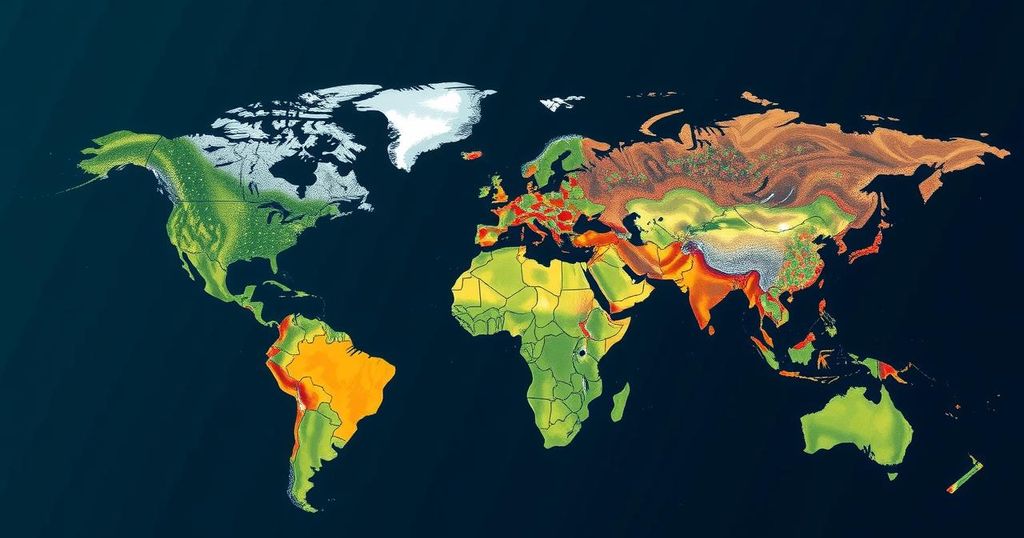Wealthier countries are beginning to compensate poorer nations for climate change damages, as seen in Malawi with Cyclone Freddy. A pilot program in Malawi distributed $750 payments to impacted families to aid recovery. With around $720 million pledged by developed nations, experts warn that these funds may fall short given escalating climate disasters. COP29 discussions focus on furthering financial aid to support vulnerable communities as they face increasing challenges related to climate impacts.
Recent developments indicate that wealthier nations are starting to provide financial compensation to poorer countries suffering from the adverse effects of climate change. In Malawi, for instance, Cyclone Freddy wreaked havoc, displacing numerous families, including Christopher Bingala’s, who lost his home and livestock. Bingala, a subsistence farmer, received a payment of $750 from Scotland’s government designated to assist those facing climate-induced losses. This financial aid allowed him to rebuild his life and family’s home in a safer area, highlighting the importance of loss and damage compensations, which have become crucial as developing nations confront increasingly severe weather events.
The global commitment to climate finance aims to address the burden faced by poorer nations, which are disproportionately affected by climate change despite contributing minimally to global emissions. Richer countries have pledged approximately $720 million to support these initiatives, but experts caution that this amount is inadequate given the escalating frequency of climate disasters. The COP29 summit currently underway in Baku seeks to finalize the details of funding distribution, with leaders urging wealthier nations to acknowledge their moral responsibility in contributing to recovery efforts for climate-impacted regions.
Bingala’s story exemplifies the challenges faced by many families in Malawi, who, like him, were displaced by devastating storms. The payment he received has not only provided immediate relief but has also allowed for longer-term investments in agriculture and education. While the funding from loss and damage initiatives is a positive step forward, the need for comprehensive support is evident as countries confront escalating crises and financial burdens stemming from climate-related disasters. The voices of leaders like Philip Davis, Prime Minister of The Bahamas, emphasize that the impacts of climate change will transcend borders, necessitating collaborative efforts in addressing these global challenges.
As the effects of climate change intensify, the pressure on vulnerable communities will only mount. A recent study predicts that the need for loss and damage funding may rise to $250 billion annually by 2030, underscoring the urgency for a robust and responsive funding mechanism that encompasses not just disaster recovery but also long-term resilience building. The time for action is now to ensure that those on the frontlines of climate impacts receive the support they require to adapt and thrive in an increasingly uncertain future.
The issue of climate change disproportionately impacts low-income countries that, despite contributing minimally to greenhouse gas emissions, are experiencing some of the most severe effects from extreme weather events. Wealthy nations have recognized the need to compensate these vulnerable populations for the damages caused by climate change. This initiative, centered around the concept of loss and damage, focuses on providing financial aid to support recovery and rebuilding efforts for affected communities. Recent discussions about this funding have been prominent at international climate summits, where agreements have been formed to create dedicated funds to assist those in need.
In summary, concerted efforts are underway to provide financial support to vulnerable nations facing the repercussions of climate change, with recent initiatives highlighting the importance of loss and damage compensation. However, as the situation continues to worsen, the current pledges may be insufficient. Continued dialogue, increased funding, and comprehensive support are critical to mitigate the financial strain on developing countries and foster resilience against future climate-related challenges. Collaboration among nations, particularly those responsible for the bulk of emissions, is imperative to address the profound impacts of climate change globally.
Original Source: www.mainepublic.org






